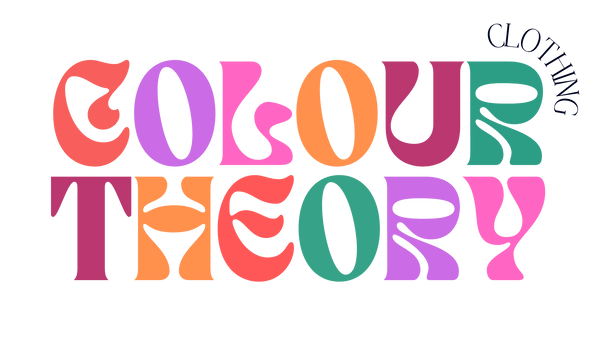
Where to buy deadstock, organic and eco-friendly fabrics in Australia and New Zealand.
Share
Whether you’re a designer, a small business owner or just someone excited to start sewing, I know it can be tough to find good-quality fabrics that are both stunning and kind to the planet. That’s why I’ve put together this list of some of my favourite places to shop for fabrics—no gatekeeping here! I’ve also included a bit of info on what deadstock, GOTS organic, and OEKO-TEX-certified materials are and why they’re the more sustainable options when it comes to choosing fabrics. I hope this makes your search for sustainable fabrics a little easier!
What are Deadstock, GOTS Organic and OEKO-TEX fabrics?
Deadstock Fabric
Deadstock fabric refers to leftover or surplus fabric from manufacturers, suppliers or designers that would otherwise go to waste. It’s fabric that’s been over-ordered, discontinued or deemed “unusable” for large-scale production. Instead of ending up in landfill, deadstock fabric is given a second life.
Why choose deadstock?
- It’s an excellent way to reduce waste in the fashion industry.
- Every piece is unique and often comes with limited availability, making it perfect for one-of-a-kind projects.
- Repurposing fabric is a practical step toward a circular economy.
GOTS Organic fabric
GOTS stands for the Global Organic Textile Standard. It’s one of the most respected certifications in the textile world, ensuring fabrics meet strict environmental and social criteria throughout their production—from farming to manufacturing.
Why choose GOTS-certified fabric?
- Organic fibres must be used. These are fibres that are produced without the aid of artificial insecticides, pesticides, herbicides, or genetically modified organisms.
- The entire supply chain must adhere to sustainable practices, including the ethical treatment of workers.
- Fabrics are free from harmful chemicals like toxic dyes and bleaches, making them safer for people and the planet.
OEKO-TEX Standard 100 fabric
OEKO-TEX certification focuses on fabric safety. Fabrics with this certification are tested for harmful substances and chemicals, ensuring they’re safe for human use.
Why choose OEKO-TEX-certified fabric?
- It’s a great option if you’re looking for fabrics that are safe for sensitive skin or children.
- The certification ensures high safety standards without compromising on quality or durability.
Why Are These Fabrics More Sustainable?
Choosing deadstock, GOTS organic, and OEKO-TEX-certified fabrics helps reduce the environmental and social impact of textile production. Here’s how:
- Reduced Waste: Deadstock fabric prevents perfectly usable materials from being discarded as landfill.
- Lower Carbon Footprint: Organic fabrics avoid the energy-intensive processes involved in conventional textile production.
- Chemical-Free: GOTS and OEKO-TEX certifications ensure minimal use of toxic chemicals, protecting both ecosystems and human health.
- Ethical Production: Certified fabrics often come from supply chains that prioritise fair wages, safe working conditions, and responsible farming practices.
Where to buy sustainable fabrics in Australia and New Zealand
Deadstock fabric suppliers
-
Circular Sourcing
Circular Sourcing is an Australian marketplace specialising in deadstock and surplus fabrics. They offer a variety of fabrics, including organic and undyed options. Quantities range from a couple of metres to entire rolls, making them ideal for small projects or larger-scale designs. Samples are available, and they have a showroom in Footscray, Melbourne.
Visit Circular Sourcing -
The Remnant Warehouse
Based in Sydney, The Remnant Warehouse stocks an extensive range of deadstock fabrics, as well as trims and haberdashery. Their designer deadstock collection is particularly popular. They offer discounts for bulk purchases (10m or more) and allow customers to buy small amounts without committing to roll quantities.
Visit The Remnant Warehouse -
The Fabric Store
With stores in Sydney, Melbourne, Brisbane, Auckland, Wellington, Christchurch, and Dunedin, The Fabric Store is a go-to for high-quality deadstock fabrics and GOTS-certified organic options. Around 85% of their range is designer deadstock, offering limited-edition fabrics with transparent sourcing.
Visit The Fabric Store -
Super Cheap Fabrics
Located in Melbourne, Super Cheap Fabrics has a stunning range of designer deadstock sourced globally
Visit Super Cheap Fabrics -
Drapers Fabrics
Drapers Fabrics stocks designer deadstock as well as eco-friendly and organic fabrics. Their exclusive deadstock collection includes couture-grade archival fabrics sourced from Italy, France, and Japan. They also offer eco-certified dyes for those looking to customise fabrics.
Visit Drapers Fabrics -
Wall Fabrics - wholesale supplier
Wall Fabrics specialises in sourcing deadstock fabrics through from international designers, garment makers, mills, and agents. They offer exclusive, high-quality fabrics that would otherwise go to waste. Their focus on sustainability helps reduce textile waste and ensures that every piece has a story to tell. Though their Sydney warehouse is currently transitioning to a showroom-only model, they plan to reopen in July 2025. You can still explore their unique collection of designer deadstock fabrics online.
Visit Wall Fabrics
Organic and OEKO-TEX fabric suppliers
-
Wattle Hill Fabrics
This Australian online store offers a wide selection of GOTS-certified and OEKO-TEX fabrics. Their collection is perfect for dressmakers and designers prioritising sustainability and quality.
Visit Wattle Hill Fabrics -
MaaiDesign
MaaiDesign specialises in eco-friendly fabrics, including organic cotton and linen. Their high-quality materials are ideal for creating sustainable garments or homeware.
Visit MaaiDesign -
Kwaint Threads
Based in Perth, Kwaint Threads offers a selection of GOTS-certified fabrics with vibrant, unique designs. They also stock a range of eco-friendly sewing accessories.
Visit Kwaint Threads
Other places to look
If you’re after smaller quantities or rare finds, platforms like Etsy, eBay, and Facebook Marketplace can be goldmines for second-hand and deadstock fabrics. Don’t forget to check your local op shops—many stock pre-loved materials that can be repurposed into something new.
I hope this guide makes your search for sustainable fabrics a little easier!
